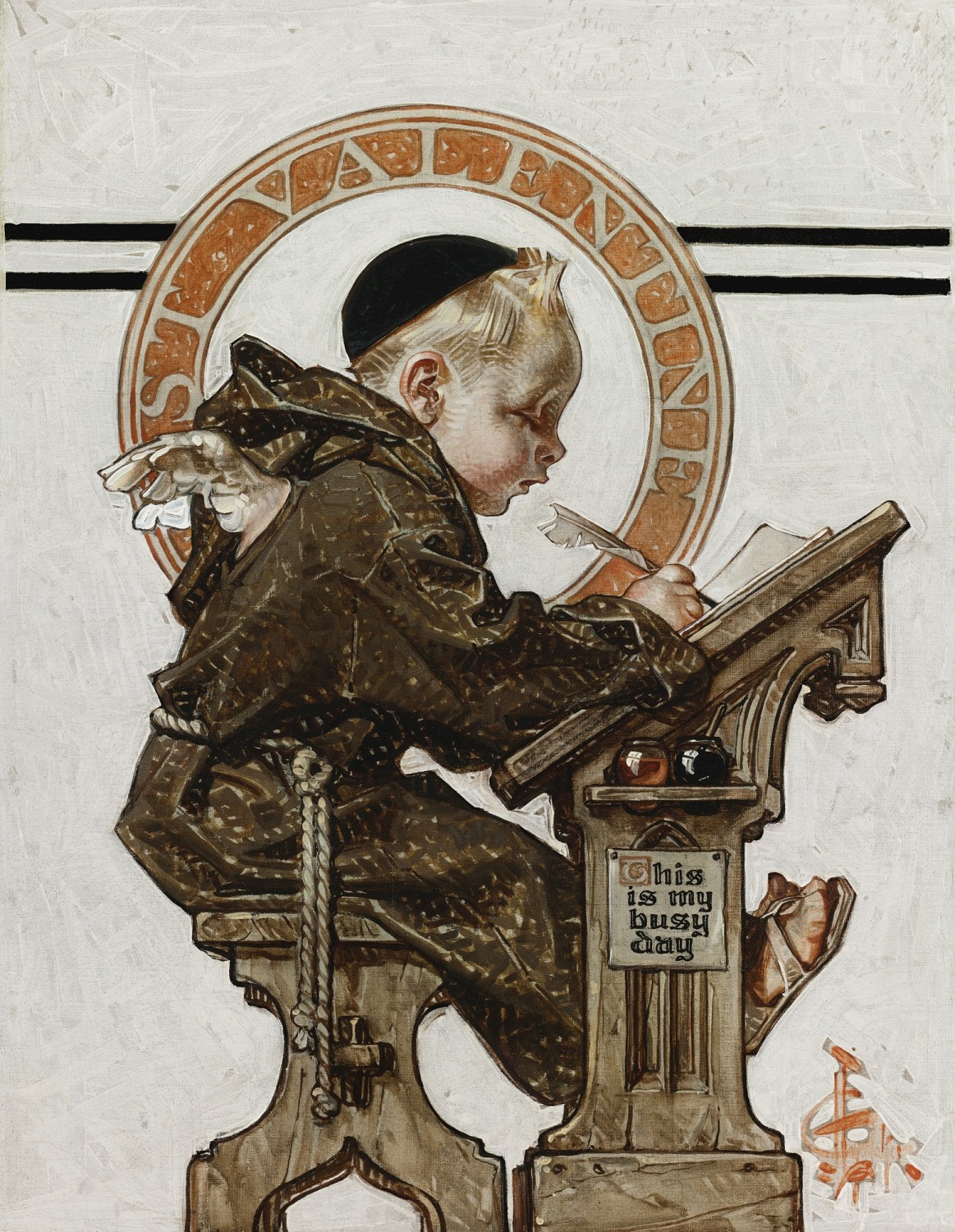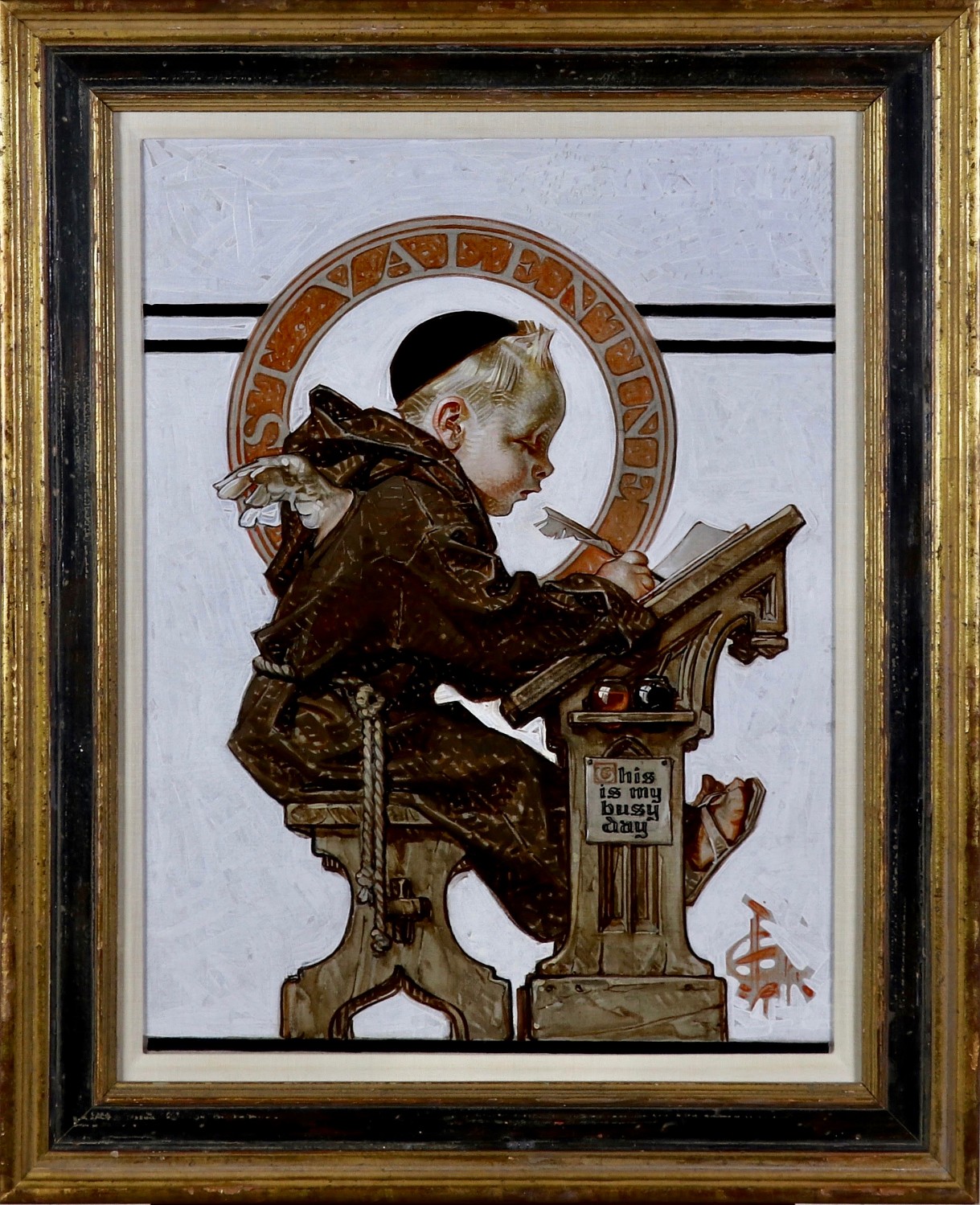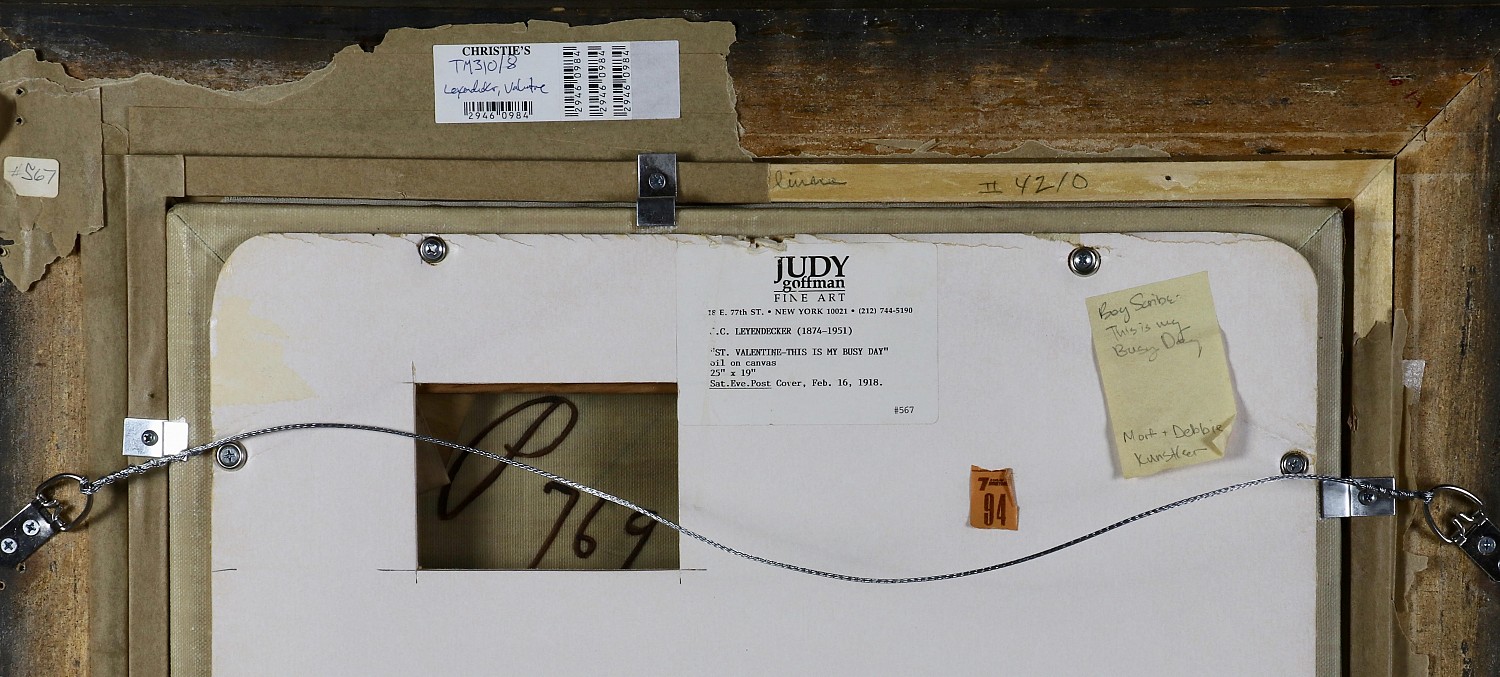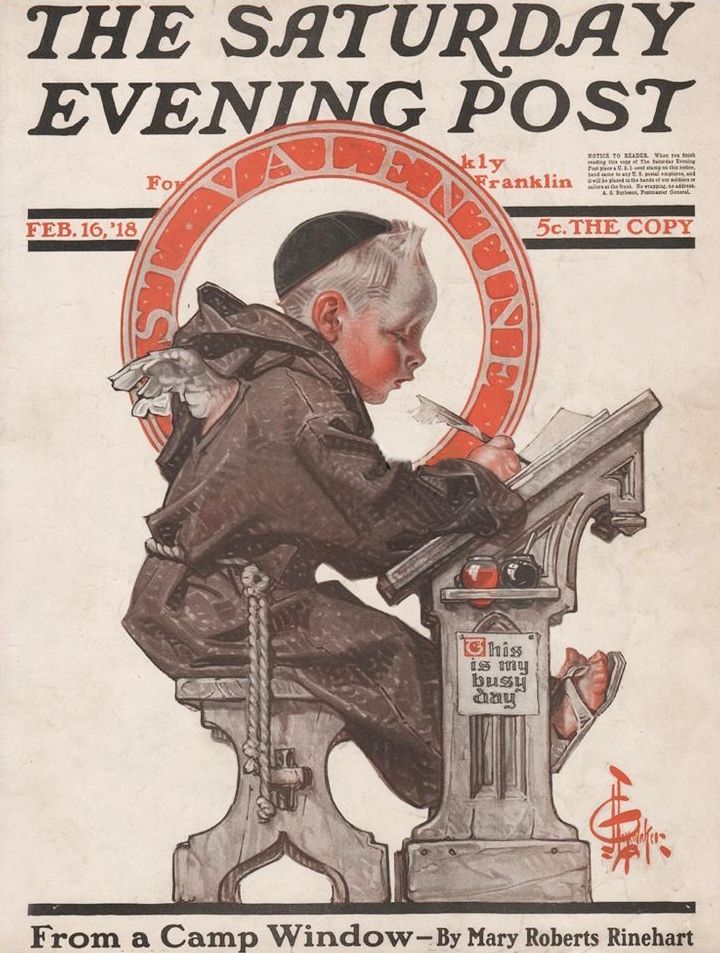"This is my Busy Day! (Valentine's Day Cherub)" Lot no. 4108
By Joseph Christian Leyendecker (1874-1951)
1918
19.00" x 25.00"
Oil on Canvas
Signed Lower Right
SOLD
Cover of The Saturday Evening Post, February 16 1918
Literature: illustrated in color on the coverJan Cohn, Covers of 'The Saturday Evening Post:' Seventy Years of Outstanding Illustration from America's Favorite Magazine, New York, 1995, illustrated in color p. 80 Laurence S. Cutler, Judy Goffman Cutler and the National Museum of American Illustration, J.C. Leyendecker: American Imagist, New York, 2008, p. 127, illustrated in color; also illustrated in color p. 126
Exhibitions: New York, Society of Illustrators, circa April-May 1950Stockbridge, Massachusetts, Old Corner House Museum, The Illustrator's Moment, July-October 1978Chicago, Illinois, Union League Club, An American Vision, December 1984, illustrated pl. 17, p. 10Stockbridge, Massachusetts, Norman Rockwell Museum, J.C. Leyendecker-A Retrospective, November 1997-May 1998New York, Museum of American Illustrators at Society of Illustrators, Americans Abroad, May-July 2008, illustrated pl. 1; also illustrated in color as the frontispieceNew York, Christie's, Illustrating America: Norman Rockwell and His Contemporaries, November-December 2013
Explore related art collections: Magazine Covers / $100,000 & Above / Children / Religous
See all original artwork by Joseph Christian Leyendecker
ABOUT THE ARTIST
Joseph Christian Leyendecker was born in Montabaur, Germany, and came to America at the age of eight. Showing an early interest in painting, he got his first job at 16 in a Chicago engraving house on the strength of some larger pictures he had painted on kitchen oilcloth. In the evenings after work, he studied under Vanderpoel at the Chicago Art Institute, and saved for five years to be able to go to France and attend the Academie Julian in Paris.
Upon his return, as a thoroughly trained artist with immense technical facility, Leyendecker had no difficulty in obtaining top commissions for advertising illustrations and cover designs for the leading publications. His first Post cover was done in 1899, and he did well over 300 more during the next 40 years. Among the most famous of these was his annual New Years Baby series.
His advertising illustrations made his clients famous. The Arrow Collar Man was a byword for the debonair, handsome male, and women wrote thousands of love letters to him in care of Cluett Peabody & Company. His illustrations for Kuppenheimer Clothes were equally successful in promoting an image of suited elegance. He was elected to the Society of Illustrators Hall of Fame in 1977.A major retrospective exhibition of Leyendecker's work was mounted at the Norman Rockwell Museum in Stockbridge, Massachusetts, in 1997-98.
Joseph Christian Leyendecker was born in Montabaur, Germany, and came to America at the age of eight. Showing an early interest in painting, he got his first job at 16 in a Chicago engraving house on the strength of some larger pictures he had painted on kitchen oilcloth. In the evenings after work, he studied under Vanderpoel at the Chicago Art Institute, and saved for five years to be able to go to France and attend the Academie Julian in Paris.
Upon his return, as a thoroughly trained artist with immense technical facility, Leyendecker had no difficulty in obtaining top commissions for advertising illustrations and cover designs for the leading publications. His first Post cover was done in 1899, and he did well over 300 more during the next 40 years. Among the most famous of these was his annual New Years Baby series.
His advertising illustrations made his clients famous. The Arrow Collar Man was a byword for the debonair, handsome male, and women wrote thousands of love letters to him in care of Cluett Peabody & Company. His illustrations for Kuppenheimer Clothes were equally successful in promoting an image of suited elegance. He was elected to the Society of Illustrators Hall of Fame in 1977.A major retrospective exhibition of Leyendecker's work was mounted at the Norman Rockwell Museum in Stockbridge, Massachusetts, in 1997-98.
Kent Steine







